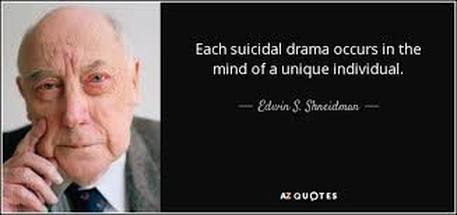 The first self-support group meeting for survivors of suicide loss just launched itself. This is a private group for survivors of suicide loss. If you have lost someone close to you to suicide, please visit www.wpeakinitiaitve.org to join the Facebook group. Read more… #LetsSPEAKaboutsuicide Just a month after SPEAK was inaugurated, Dr. Sivanandha Raja and Dr. Meenakshi Raja from Karaikudi reached out to me. About six months back they had lost their brilliant teenage son Bhuvanesh Raja to suicide. We agreed to meet the next day at the SPEAK office premises. This was born SPEAK for Survivors of suicide loss—a self-support group for those bereaved by suicide. I still remember by opening lines, “How I wish we didn’t have to be members of this group…” They nodded in complete agreement. Yes, our membership in this group was by sheer chance; not choice. We are now branded with the unwelcome designation of a survivor of suicide loss. We spent the next three hours, sharing and listening to our mutual stories of loss, pain, sorrow and anguish. All three of us felt supported and validated in a safe and supportive space. While our grief was unique in several aspects, the commonalities were overwhelming. The experiences of shame, blame, stigma, isolation and exclusion were common to all of us. All of us were and continue to be subject to speculation. Why did the person do this? People are obsessed with trying to find out the one reason why…. In such an atmosphere of doubt and blame, it is all too easy to blame ourselves. Parents who survive the suicide of their son or daughter are often blamed for having failed in their parental duty of “protecting” their children. Similarly, a wife whose husband dies of suicide is perceived as having “failed” to prevent the suicide. Interestingly, such accusations need not be explicit. Often, it is subtle and as survivors of suicide loss, we are acutely sensitive and perceptive to such sub texts. We were each other’s sounding board as we explored our fears and concerns. The collective empathy generated was reassuring; especially as we felt so “disconnected” from most people simply because others did not share our vocabulary of stigma and shame. How can we rebuild our lives with hope and courage while honoring and cherishing our loved one? What will the “new normal” in our life feel like? Will we be ever “whole” again? The truth is that no one can be “responsible” for another person. Would we blame the surviving spouse or parent if the person concerned had died of cancer or any other disease? Why then, are we so ready to brand survivors of suicide loss as having “failed” to prevent the suicide or even indirectly being a trigger? Participating in the support group was a truly healing experience for me. I felt heard’ validated and supported unconditionally. I suppose there is no substitute for lived experience. I felt reassured that my felt experience of stigma, shame and isolation were not a figment of my imagination but an expression of the empathy deficit, judgmentally and insensitivity. My friend Dr. Bharat Krishna Shankar once profoundly remarked, “the absence of judgmentality is liberation.” Seeking to change conversations on suicide and expand our understanding of this public health issue is an opportunity for everyone to step beyond judgments and moralistic stance on suicide. We need to engage with this issue with compassion and concern. Is anyone listening? Just a month after SPEAK was inaugurated, Dr. Sivanandha Raja and Dr. Meenakshi Raja from Karaikudi reached out to me. About six months back they had lost their brilliant teenage son Bhuvanesh Raja to suicide. We agreed to meet the next day at the SPEAK office premises.
This was born SPEAK for Survivors of suicide loss—a self-support group for those bereaved by suicide. I still remember by opening lines, “How I wish we didn’t have to be members of this group…” They nodded in complete agreement. Yes, our membership in this group was by sheer chance; not choice. We are now branded with the unwelcome designation of a survivor of suicide loss. We spent the next three hours, sharing and listening to our mutual stories of loss, pain, sorrow and anguish. All three of us felt supported and validated in a safe and supportive space. While our grief was unique in several aspects, the commonalities were overwhelming. The experiences of shame, blame, stigma, isolation and exclusion were common to all of us. All of us were and continue to be subject to speculation. Why did the person do this? People are obsessed with trying to find out the one reason why…. In such an atmosphere of doubt and blame, it is all too easy to blame ourselves. Parents who survive the suicide of their son or daughter are often blamed for having failed in their parental duty of “protecting” their children. Similarly, a wife whose husband dies of suicide is perceived as having “failed” to prevent the suicide. Interestingly, such accusations need not be explicit. Often, it is subtle and as survivors of suicide loss, we are acutely sensitive and perceptive to such sub texts. We were each other’s sounding board as we explored our fears and concerns. The collective empathy generated was reassuring; especially as we felt so “disconnected” from most people simply because others did not share our vocabulary of stigma and shame. How can we rebuild our lives with hope and courage while honoring and cherishing our loved one? What will the “new normal” in our life feel like? Will we be ever “whole” again? The truth is that no one can be “responsible” for another person. Would we blame the surviving spouse or parent if the person concerned had died of cancer or any other disease? Why then, are we so ready to brand survivors of suicide loss as having “failed” to prevent the suicide or even indirectly being a trigger? Participating in the support group was a truly healing experience for me. I felt heard’ validated and supported unconditionally. I suppose there is no substitute for lived experience. I felt reassured that my felt experience of stigma, shame and isolation were not a figment of my imagination but an expression of the empathy deficit, judgmentally and insensitivity. My friend Dr. Bharat Krishna Shankar once profoundly remarked, “the absence of judgmentality is liberation.” Seeking to change conversations on suicide and expand our understanding of this public health issue is an opportunity for everyone to step beyond judgments and moralistic stance on suicide. We need to engage with this issue with compassion and concern. Is anyone listening? 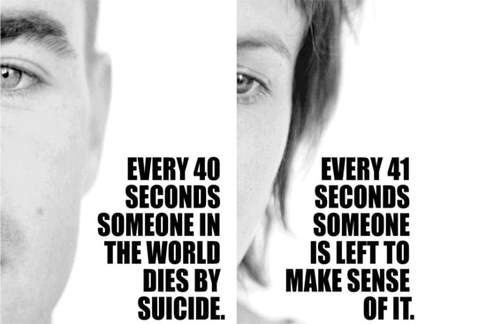 I confess. I am an extremely private person; shy to the point of wanting to melt with the woodwork. And so was my late husband, Dr. TR Murali. And both of us were publicity-shy. I took it even further, by even shunning social media. However, my husband’s tragic death by suicide, made my very private life and grief very public. Overnight, there I was, trying to shield myself from the unrelenting harsh public gaze that a death by suicide attracts. While sensationalism and speculation are rampant around suicidal deaths, I discovered there is a conspiracy of silence around informed compassionate conversations of suicidal deaths among the families and friends of those bereaved by suicide. The prevailing attitude seems to be, “If we are not comfortable about something—say, suicide—let’s avoid discussing about it.” This, unfortunately, is an ostrich-like approach to avoid facing inconvenient truths. How many of you have heard of the term survivor of suicide loss? Like most of you, I too hadn’t heard of this term until a year back I was bereaved. A survivor of suicide loss is a family member or close friend who has lost a loved one to suicide. Because, you see, until it happened to me; until it happened in my family; suicide was something that happened to other people. I lived in a glass house. And glass, as we all know, is the most fragile of substances. However, unlike glass, I refused to be broken. Because broken implies a state of damage. Something that needs to be fixed with external help, something that can never be whole again. As a survivor of suicide loss, I refuse to subscribe to such disempowering stereotypes. Yes, I was shattered by suicide. Since the last one year, I’ve groped for the fragments of my life in the debris of devastation. I found precious pieces; pregnant with hope; with which I’ve begun to reconstruct my life. The image is hazy, but behind the pixilation, I can see the hint of something powerful and beautiful—my life that I am reclaiming. My journey has just begun… The road ahead for me, like other survivors of suicide loss, is challenging. SPEAK, composted in my grief and sorrow, is an attempt to reach out to survivors of suicide loss; to help people rebuild their lives. SPEAK decided to launch itself. It has had an energy and momentum of its own. It choses where to flow; whom to reach out to. I am just a channel for the Force to flow through… let the Force take me where it wants to… SPEAK is not a platform to promote or garner publicity for myself. Yes, it is a platform to promote a cause—preventing suicide; creating a zero-suicide world, idealistic as it sounds. And that the cause is far greater than the people behind it. So, it is with SPEAK. I claim no individual ownership or copyright over SPEAK. Why am I SPEAKING with you? Because addressing suicide is everybody’s business. So, how can you help? By reaching out to survivors of suicide loss and people at risk of suicide with love, compassion and empathy. And please, please don’t judge and condemn what you cannot possibly even remotely understand. |
Dr. Nandini MuraliDr. Nandini Murali is a feminist and a gender and diversity professional. She is an author who also provides technical support in communications for the social sector. When she is not working, she heads off to the forests with her camera. Currently, she has a magnificent obsession with photographing leopards! Archives
October 2018
Categories |

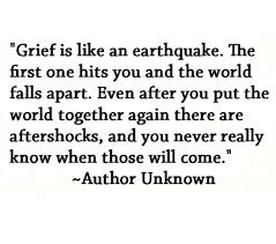
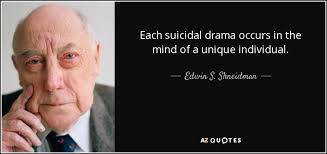
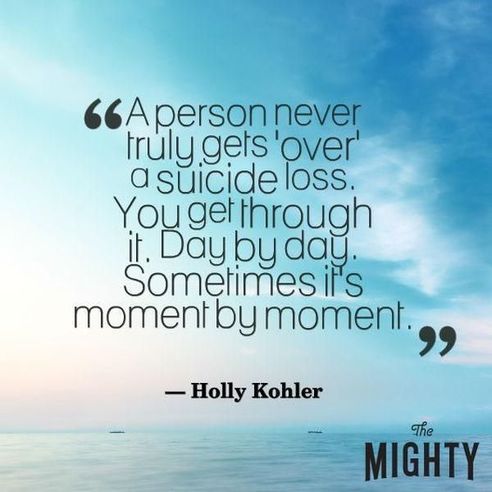
 RSS Feed
RSS Feed
